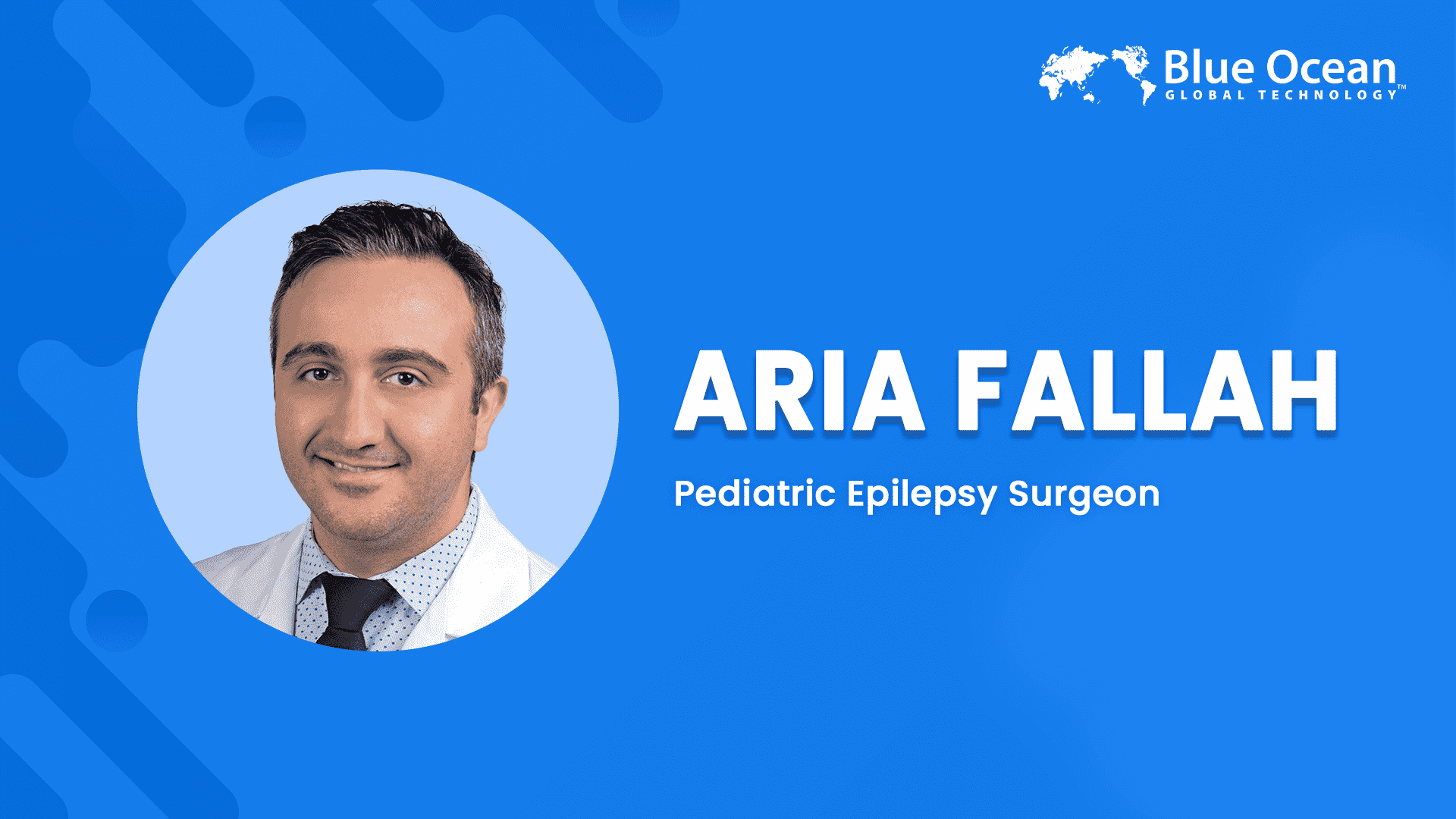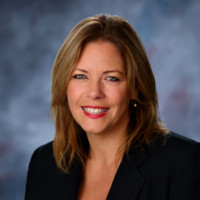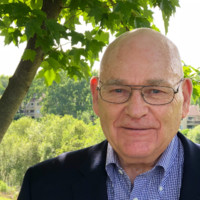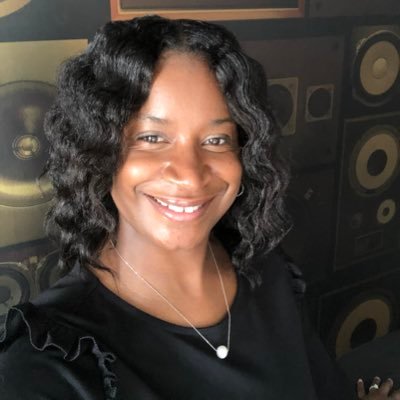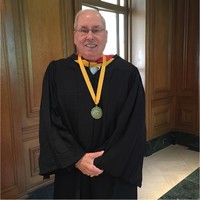About Aria Fallah

Dr. Aria Fallah, MD, MSc, MBA, FRCSC, is an internationally renowned epilepsy surgeon and leading authority in both pediatric and adult epilepsy surgery. He holds the Dr. Alfonsina Q. Davies Endowed Chair in Epilepsy Research at UCLA, where he serves as Director of Epilepsy Surgery, one of the busiest NAEC Level-4 centers in the United States. Patients and families travel from across the U.S. and internationally to UCLA for his care.
Dr. Fallah has performed over 1000 epilepsy surgeries, including hemispherectomy, corpus callosotomy, laser ablation (LITT), and neuromodulation (RNS, DBS, VNS). He helped pioneer thalamic responsive neurostimulation in the U.S. and was among the earliest adopters of corpus callosotomy for infants. His expertise spans both minimally invasive techniques and complex resective and disconnective procedures.
An internationally recognized academic leader, Dr. Fallah has published more than 170 peer-reviewed papers in the top epilepsy and neurosurgical journals and is a frequent speaker at global conferences. He has helped advance epilepsy surgery programs in India, China, Chile, and Haiti, and continues to collaborate worldwide.
Through his surgical innovation, global outreach, and commitment to multidisciplinary care, Dr. Fallah is widely recognized as one of the world’s leading epilepsy surgeons, improving the lives of children and adults facing the most challenging forms of epilepsy.
Blue Ocean: Tell us about your professional journey. What inspired you to pursue this career, and what continues to fuel your passion for the profession today?
Aria Fallah: I am a pediatric epilepsy surgeon. My studies in pharmacology and toxicology began as an undergraduate before I attended medical school at McMaster University. From there, I completed my neurosurgery residency at the University of Toronto, where I also earned a master’s degree in clinical epidemiology and biostatistics at McMaster.
Following residency, I pursued fellowship training in pediatric neurosurgery at the University of Miami’s Miami Children’s Hospital, which ultimately led me to UCLA, where I now specialize in epilepsy surgery.
Most recently, I expanded my perspective beyond medicine by completing an Executive MBA at the UCLA Anderson School of Management. This added dimension to my training has allowed me to approach healthcare with both clinical expertise and a broader understanding of leadership, strategy, and impact.
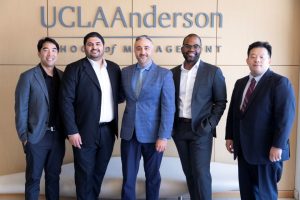
Blue Ocean: What does a typical day look like for you?
Aria Fallah: My days are anything but typical. Some days, I’m in the operating room from start to finish—performing a single surgery that can last 12 to 14 hours. These are highly specialized procedures performed by only a select few surgeons in the country, and they require absolute focus and endurance.
On other days, I’m in the clinic meeting with patients, preparing and delivering lectures, or presenting at academic conferences. Outside of medicine, I’m also involved in several business ventures, which keep me engaged in different ways.
Equally important, I dedicate time to self-reflection and growth. It’s easy to get caught in the cycle of doing, but I make it a priority to pause, reflect, and invest in becoming a better version of myself for the future.
Blue Ocean: Which emerging trends in your profession most excite you?
Aria Fallah: We’ve spent many years fighting the stigma surrounding epilepsy. Unfortunately, many people living with the condition never seek medical attention, and in some cases, families keep children with epilepsy at home. This is especially tragic because we now have access to incredible treatments, and epilepsy is far more common than most realize.
Today, we have powerful tools like social media, artificial intelligence, and digital platforms that can help break down these barriers. Access to expertise, however, is not equally distributed. Depending on where you are born, you might live in a city with multiple specialists—or on an entire continent without a single one. Our mission is to improve equity in care and extend our impact beyond the individual patient sitting in front of us.
I’m particularly interested in integrating AI across different aspects of our work. Neurosurgeons, at least for now, are relatively protected since surgical expertise cannot easily be replaced by robotics. But, AI has immense potential to enhance almost every aspect of care, from patient intake and communication to follow-ups, administrative tasks, billing, and authorizations.
Blue Ocean: Can you walk us through a particularly challenging case you’ve handled and explain your strategy for resolving it?
Aria Fallah: Cerebral hemispherectomy is one of the most radical surgeries we perform. It involves removing half of an infant’s brain to treat severe epilepsy. These are children who may suffer hundreds of seizures daily, and the only cure is to remove one hemisphere. Remarkably, this is possible in very young children because of the brain’s extraordinary neuroplasticity—the other half can adapt and take over critical functions. But this surgery cannot be done in adults, which is why our patients are often the smallest and youngest.
During one such surgery, we faced significant challenges with bleeding and visualization. The patient became hemodynamically unstable, and the pressure was immense. This is where I see the direct connection between surgery and leadership. As a surgeon, you must remain in control of the situation—completely aware of your environment, your team, and the resources at hand. You must project calmness, even when you feel anything but calm inside.
In those moments, you cannot let your mind scatter with a thousand possible outcomes. You must stay focused and manage the situation. When a surgeon loses control, the entire team loses control. Leadership in the operating room is not an innate gift—it’s a skill developed over time through repetition, mentorship, and experience.
That day, I had to draw on every resource available to me: my training, my surgical skills, my mentors’ lessons, and—most importantly—the strength of my team. We aligned, recalibrated, and stabilized the patient, controlled the bleeding, and turned what could have been a catastrophic outcome into a successful one.
Blue Ocean: You’ve earned a strong reputation. How do you and your team continue to stay ahead in such a highly competitive field?
Aria Fallah: The key to growth is continuous self-improvement. The skills that get you to one stage of life rarely carry you to the next. It’s easy to rely on what worked before. But actual progress requires evolving your skills as your opportunities expand.
That means committing to ongoing self-improvement and seeking and welcoming authentic feedback from every direction: leaders, peers, and those you lead. Honest feedback is increasingly rare, but it is invaluable. Radical change doesn’t happen overnight; it happens step by step, as you address weaknesses and build your strengths.
Another important factor is personal branding. To me, branding means consistently showing up with integrity, attitude, and professionalism. But none of that matters if you’re not pursuing work you care deeply about. Passion shows.
For me, medicine is not just a career; it’s a calling. Every day, I consider it an honor to do what I do. That passion fuels resilience, gratitude, and joy in the journey. And I recognize that no one succeeds alone. My path was made possible by the sacrifices and support of family, mentors, friends, and communities through multiple immigrations and countless challenges.
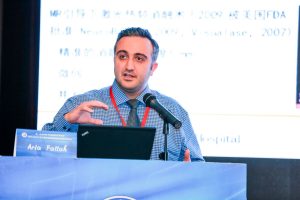
Blue Ocean: What core values or principles do you believe every great professional should uphold, regardless of their practice area?
Aria Fallah: Authenticity is essential. People don’t want a fake leader or colleague who hides their true feelings. Too often, people hold back because they don’t feel psychologically safe—but authenticity creates the best environment for trust and collaboration. Mentors and role models are valuable, but you have to understand your own authentic voice: how you lead, how you communicate, and how you show up.
Integrity is equally fundamental. If you say you’re going to do something, do it. And if you can’t, be honest right away. For example, if you know you’ll be late, let people know as soon as possible. That simple act shows respect for others’ time, just as you want yours to be respected. Life is unpredictable, but integrity means being reliable, transparent, and a person of your word.
And then there’s empathy—simply being a good human. As technology advances, no algorithm can replace genuine human care. When I sit with a parent and tell them their child has cancer, no AI program can make that moment easier. What matters in that moment is empathy—the ability to feel alongside another human being. That’s what people will always need most.
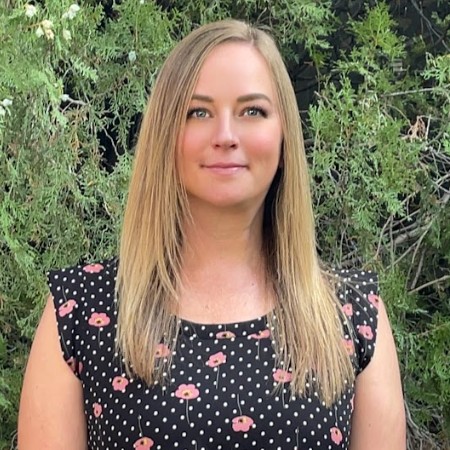
Blue Ocean: What are some common misconceptions people have about your field of work?
Aria Fallah: Outside of medicine, people often assume neurosurgeons are extremely serious, intense, and maybe even unapproachable. But the truth is, we’re not superhuman—and we’re certainly not the most intelligent people in the room. What sets us apart isn’t brilliance, but exceptional dedication.
Becoming a neurosurgeon is less about innate genius and more about persistence. It’s about showing up day after day, year after year, and committing yourself fully to the craft. Malcolm Gladwell’s “10,000-hour rule”—the idea that mastery requires countless hours of practice—is a reality here.
Mastery in neurosurgery comes from disciplined, deliberate practice sustained over years. Talent matters, but relentless preparation, teamwork, and humility are decisive.
Blue Ocean: What distinct value do you bring to your patients and their families, especially when managing complex or high-stakes situations?
Aria Fallah: Knowledge is power. One ongoing debate between me and some of my senior colleagues is around paternalism in medicine. In earlier generations, patients often relied on doctors to make decisions for them. I don’t believe that model works today, especially for my generation or those younger.
As a millennial treating millennial patients, I see the shift clearly: people want information, transparency, and empowerment to make their own choices. To me, it’s a failure if patients or families simply go along with a recommendation without truly understanding it. Our role is not to decide for them, but to give them the knowledge they need to make the decision that’s right for them.
In brain surgery, these decisions can be deeply personal. Sometimes the seizure focus lies in a speech area. Removing it might stop seizures, but cost the ability to speak. For most, that’s not worth the trade-off. If the focus is in a sensory area, the risk may be smaller and the benefit greater. But ultimately, the choice belongs to the patient or family. They’re the ones who must live with the outcome.
I also live by a simple rule: treat every patient as if they were my own family. I would never recommend something for a patient that I wouldn’t recommend for my mother, father, or child. This perspective helps me stay empathetic in a system that often prioritizes speed and efficiency over connection. A clinic visit might be one of dozens in my day, but for the patient, it could be the most vulnerable and life-changing moment they’ve ever experienced. That’s why the small things matter: sitting down, listening fully, spending a few extra minutes, or sometimes just sharing silence. Everyone carries unseen burdens, and empathy allows us to honor that.
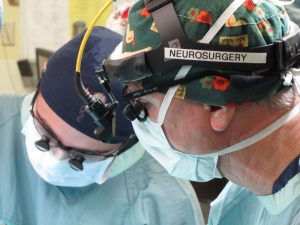
Blue Ocean: How do you maintain emotional and psychological resilience when handling sensitive or high-pressure cases?
Aria Fallah: That’s just my nature. I also believe our personalities tend to draw us toward certain careers. When I was applying to business school, I took a personality test and scored extremely high on “non-reactivity.” That trait has been invaluable in neurosurgery and other high-stakes situations. When chaos erupts around me, I’m able to stay calm, focus on what matters, and take things one step at a time.
Of course, it’s not always an advantage. When something truly exciting happens, I might not react as enthusiastically as others. On the flip side, if I do panic, people notice immediately—because they know it must be serious.
Blue Ocean: What’s one lesson in life that changed your perspective?
Aria Fallah: The biggest lesson for me has been about trust. I trust people easily, and while that sometimes leads to disappointment, it has more often led to good outcomes. Trust brings out the best in others, and even in a low-trust world, I’ve found it worth extending.
Yes, some people take advantage, but most rise to the occasion. That’s why I continue to approach people with trust. It has shaped my relationships and career in positive ways.
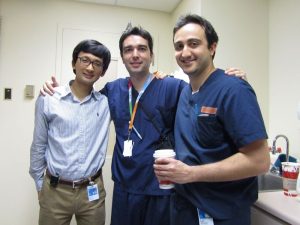
Blue Ocean: What advice would you offer to aspiring professionals entering the profession today?
Aria Fallah: In medicine—and especially in neurosurgery—most of us feel there’s nothing else that would bring the same fulfillment. It’s not just a profession; it’s a calling. The work is incredibly humbling. Few people will ever experience what it means to have someone place the person they love most in their hands. That trust carries enormous responsibility. The highs are extraordinary, but the lows can be equally deep.
That’s why it’s so important to follow your passion and commit to lifelong learning. The idea that education ends with graduation is outdated. Knowledge evolves quickly—half of what I learned in training was obsolete by the time I finished residency seven years later.
Adaptability, leadership, and people skills are becoming more valuable than memorization. Anyone can access medical information in seconds. What sets you apart is your ability to lead, communicate, and connect with others.
This applies to any profession. Your work should enhance your life, not take away from it. A job should align with your values and complement your growth. For me, that balance means teaching my children about equity, fairness, and justice, not just about wearing helmets.
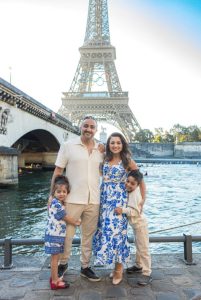
Blue Ocean: What hobbies or interests do you enjoy outside of work?
Aria Fallah: Spending time with my family and kids is my top priority. Beyond that, I love comedy. My wife and I often travel to Los Angeles for shows and entertainment because laughter really is the best medicine.
We often hear about the negatives of social media, and those are real, but the internet can also be hilarious. Taking five minutes to scroll, laugh at memes, and watch a funny video can be a great mental reset—so long as it’s in moderation. Comedy, in all its forms, matters to me. Not just watching it, but also being able to laugh at myself.
I also stay active by playing pickup basketball whenever I can. And I love to travel, especially with my kids. For me, traveling allows me to give them a sense of perspective, exposing them to different cultures, languages, and ways of life. We’re living in a globalized world where real-time conversations across continents are now effortless. By visiting far-flung, culturally distinct countries, I try to immerse my family and me in experiences that broaden our understanding of the world.
Conclusion
Dr. Aria Fallah’s journey reflects not only a deep commitment to advancing pediatric epilepsy surgery but also a broader philosophy of leadership, empathy, and lifelong growth. From his early studies in pharmacology to his specialized neurosurgical training and, most recently, his Executive MBA, he has continually sought to expand his expertise and impact. His career embodies discipline, resilience, and compassion that define both his surgical excellence and his approach to life.
Do you have a personal or professional story that can inspire other people into becoming the best version of themselves?
You are welcome to share your journey with our audience.

